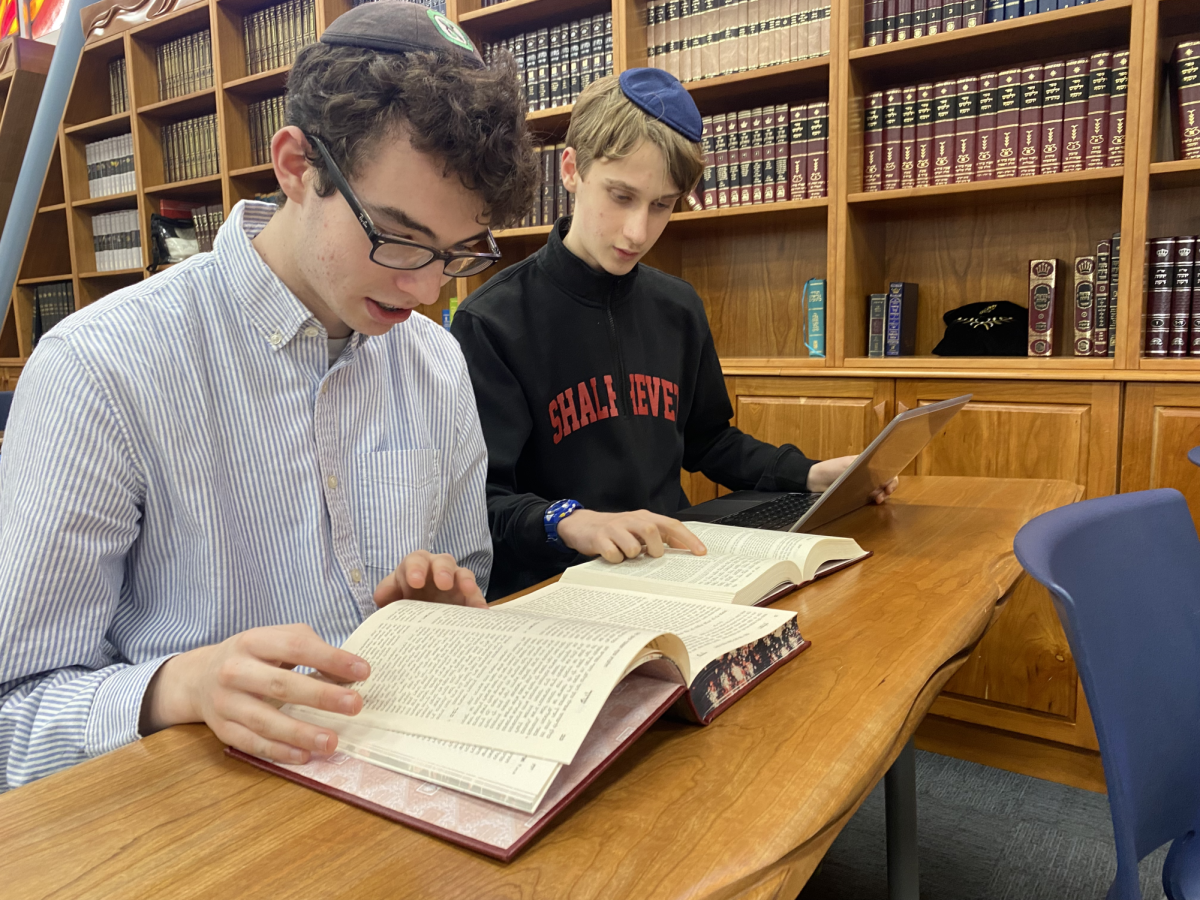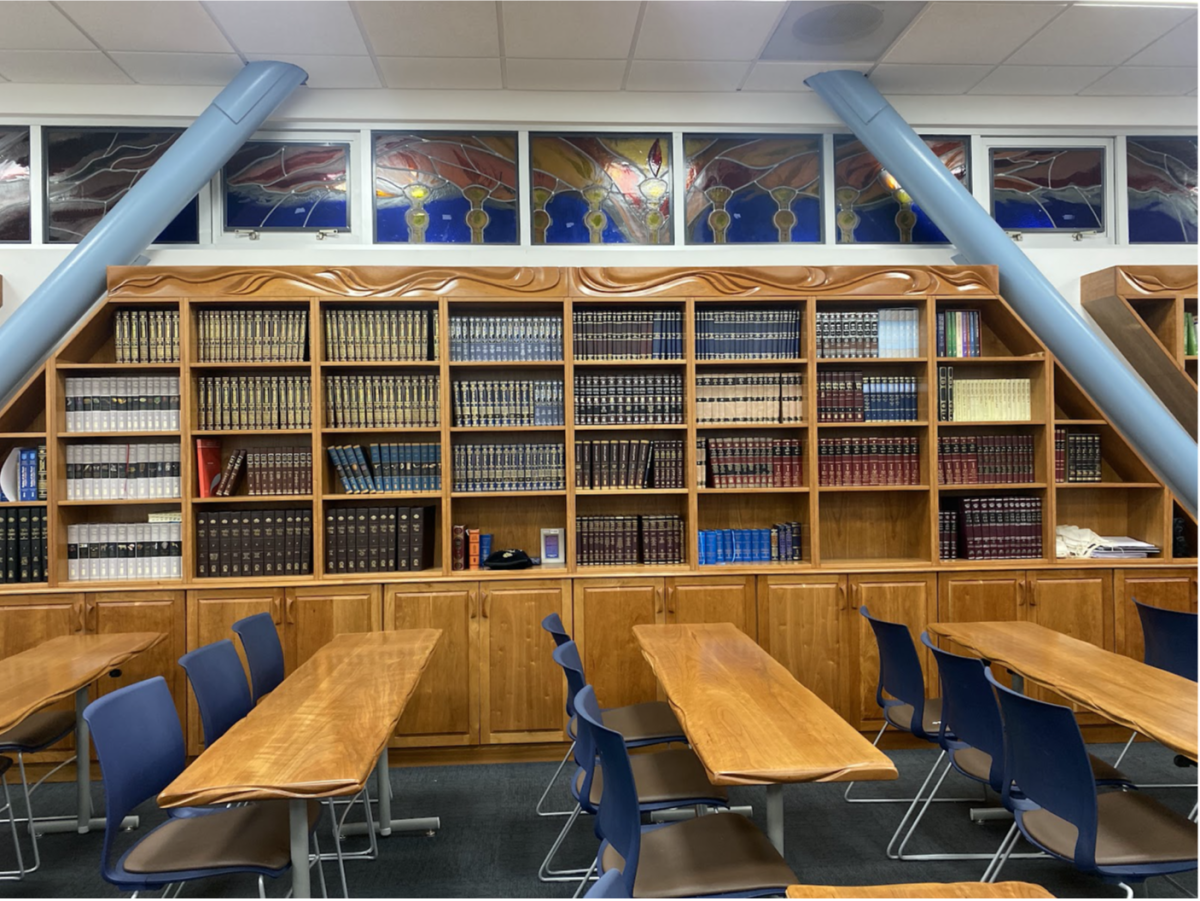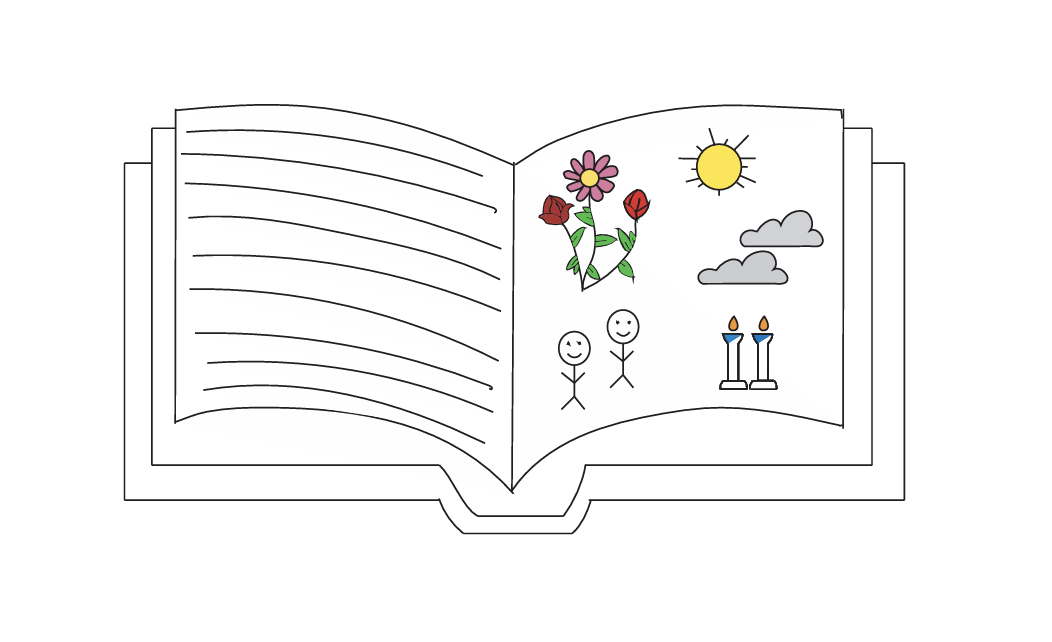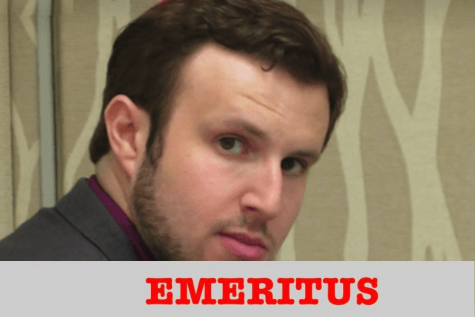“I got a golden ticket!” exclaimed one girl as she ran down the hallway before breakfast Nov. 30th as she held a Hershey’s bar with a bright yellow piece of paper attached.
“I got one too!” said another.
In fact, more than 40 Shalhevet students received “golden tickets” attached to chocolate bars. But these were not invitations to tour a world-famous candy factory.
The tickets were actually invitations sent by the Shalhevet Judaic Studies Department to invite students to join an exclusive new minyan, the centerpiece of a revamped davening policy that has radically changed the practice of morning prayer for more than half of Shalhevet students.
According to Education Director Rabbi Rodney Feinerman, the Beit Midrash Honors Minyan, or Honors Minyan for short, is a by-invite-only minyan for both boys and girls who are “serious about and love davening.” Invitees were hand-picked by Judaic staff based on interest and enthusiasm toward davening as well as participation in their previous davening groups.
The rest of the school’s minyanim and prayer groups, excepting only the Yoga and new Basketball Minyan, now have officially become “learners’ minyans,” divided by gender and grade level. Their goal is to educate and excite students about davening, Judaic studies teachers said, responding to an overall sense that students didn’t understand the prayers well enough to pray sincerely.
Instead of progressing through the liturgy with a siddur (prayer book), the various learning minyans incorporate lessons about Tefillah (prayer) and halacha (Jewish law) as well as approximately five minutes of traditional davening at either the beginning or the end.
“Students have been asking for this for years,” said history teacher Dr. Jill Beerman. “Often, students would complain about lacking understanding of the prayers and they would ask for something like the new Learners’ Minyans.”
The change came about after the Judaic Department collectively agreed that conduct during davening had become ridiculous and that not enough people were actually praying.
Rabbi Feinerman, who headed the committee to change davening, said that the new Honors Minyan will be very strict when dealing with disruptive behavior.
“Just because a student receives an invitation to Honors Minyan, they are not required to join,” Rabbi Feinerman said. “But at the same time, getting an invitation doesn’t guarentee a permanent spot in the minyan. Students can be removed from the minyan if they are talking.”
Judaic Studies teacher Rabbi Ofer Sabo, who led the Sophomore-Junior boys minyan, now leads Honors Minyan.
“The goal of Honors Minyan is to be like a regular shul minyan,” he said. “We have a full tefillah and only tefillah. In normal shuls theres is talking and shmoozing, but we don’t have that here. This is working out well and Baruch Hashem it will continue.”
Overall, the new minyan has gotten good reveiws from the close to 50 students who now attend regularly.
“It’s a great minyan because it’s relaxed and the people in it do daven without disruptions,” said junior Jasmine Hanasab.
Freshman Rony Shemtov also thinks the minyan is good but that it goes too fast.
“It’s a nice minyan but we need to slow down,” said Rony. “Davening shouldn’t go too fast, we should enjoy it.”
Sophomore Josh Meisel much prefers being in Honors Minyan but feels it could stand a few changes.
“It’s too plain,” said Josh. “It needs more singing and ruach (spirit).”
Josh had previously been a member of “Happy Minyan,” which had been a livley coed davening group that was filled with song and dance every morning. The Happy Minyan’s existence abrubtly ended when daily turnout thinned just before Rosh Hashana.
But as of December 1, the Honors Minyan in the Beit Midrash became the only “traditional” minyan in school besides Basketball Minyan (see related story on page 23).
Unlike Honors Minyan, the Learners Minyans do not have a Torah reading. Judaic Studies teacher Rabbi Naftali Richler, who runs the Learners Minyan for sophomore and junior boys, cited the lack of respect for Torah reading in the past as a reason not to continue it in Learners’.
“We feel that the Torah had been desecrated,” Rabbi Richler said. “People took it as a joke and there was a lot of talking. It’s something that needs to be reserved for mature audiences only. Better that we don’t have it, than have it be desecrated.”
Rabbi Richler’s Learners’ Minyan started off with philosophical discussions about davening and will work its way toward in depth discussion and analyisis of prayers, he said.
Perhaps because of the candy bars, students not invited to Honors Minyan met the new system with dissent, even though non-praying minyans are actually something students have asked for for years.
By the third day of the new system, relations turned sour between faculty and students in learner’s minayns. In one, students spent the entire davening period complaining.
“The point is not to punish the students,” said Rabbi Richler. “We just needed to get rid of the ‘free period’ atomsphere of davening. Ultimately, the goal is to get every student into the Honors Minyan.”
One group had a preview of the new Learners’ Minyan system weeks before the schoolwide switchover. Just after Sukkot break, a new davening instructor was brought into the sophomore girls’ prayer group to institute a new style of learning-based davening. The unexpected change angered many students in the group.
“It was really unexpected,” said sophomore Polina Tsukerman. “This new minyan isn’t like what we had before.”
What they had before was a prayer group run by Solly Hess, a West Coast NCSY director. According to Polina, Solly favored an “informal education” style of teaching about davening.
“We used to have stories and ask questions that Solly would answer,” said Polina. “Now we have a set curriculum which doesn’t provide a lot of flexibility.”
With Solly, the sophomore girls would have, on average, 10 to 15 minutes of traditional davening, enough to get through the main sections. The new curriculum-based minyan does not allow for any traditional prayer, Polina said.
“We want to daven, but we are not allowed to,” added Polina.
Other sophomore girls think that the new minyan is tolerable and that protest is just disruptive.
Complaints are not limited to the sophomore girls’ davening. Junior Nathan Rivani thinks that this new system is an inefficient way to encourage students to daven.
“It isn’t successful because many students in Learners’ Minyan don’t have the incentive to move up to Honors Minyan,” he said.
Adding to some resentment, grades for Honors Minyan will be weighed on a five-point scale. Davening grades are factored into students’ grade point average, though college counselor Dr. Steven Mercer said that most schools will ignore it.
“The UC schools disregard it entirely,” Dr. Mercer explained. “Some schools will look at a student’s overall transcript but the vast majority will disregard the davening grade.”
Several students said that the added credit for honors davening is unjust.
“I doesn’t make sense that Honors Minyan should get double credit for davening especially when Learners’ [Minyan] is more of a classroom setting,” said senior Meital Cafri. “This is really a just bribe to get kids into Honors.”
But Rabbi Feinerman defended the policy.
“In that minyan, there is a higher expectation of the students,” said Rabbi Feinerman. “The students are the Gabbai, the chazzan, and the baal koreh. They are taking on more responsibility and leadership and so their grade should reflect that.”
Meital did not receive an invitation to Honors Minyan but is part of the girl-run Yoga minyan. Recognized by the administration as the Yoga Prayer group, the Yoga Minyan and new Basketball Minyan (see related story Page 23) are now the only alternatives for students who were not invited to Honors Minyan. Freshmen and boys are not allowed to join the yoga group and Basketball Minyan is exclusive to the 13 varsity boys basketball players. Currently, 35 girls are registered in the Yoga Minyan.
Rabbi Feinerman has said that students who were not invited to Honors Minyan and think that they should have been can appeal to their respective teacher to be taken into consideration for Honors Minyan. The teacher will decide on a case-by-case basis if students are qualified.
“The teacher is the king of his castle,” he said. “It’s up to them to determine if a student is ready to leave [Learners’ Minyan].”
One student who asked to remain anonymous said that he felt that his Learners’ Minyan was a waste of time.
“We’re not doing anything important,” he said. “We may as well just have not have davening.”
But Judaic studies teachers feel the program is already improving the level of students’ daily prayer.
“Davening had been kind of a disaster before,” said Judaic studies teacher Jason Feld, who leads the Freshman Boys’ Learners’ Minyan. “This was not just Rabbi Feinerman. We all felt that a change was necessary. Now it’s incumbent on the teachers to prevent davening from becoming a new form of disaster.”
Rabbi Richler agreed.
“In the history of Shalhevet, there have never been so many people davening,” said Rabbi Richler, who has been teaching here since 2001. “The people who wanted to daven before are davening in Honors and the people who weren’t davening are saying Shema in [my] Learners’.”
Judaic studies teacher Rabbi Aaron Parry, who used to run Happy Minyan and now teaches the Sephardic Learners’ Minyan explained that he feels that his new Learners’ minyan is actually a step down from before.
“Before the change, there was one or two students who held the structure of Sephardic Minyan together. Now that they are in Honors and we barely have davening at all.”
Rabbi Feinerman explained that the new system is not permanent the way it is currently.
“We are not only open to working with students,but we encourage students to participate in the molding of this program,” said Rabbi Feinerman. “We look forward to seeing what this program evolves into in the coming months.”







